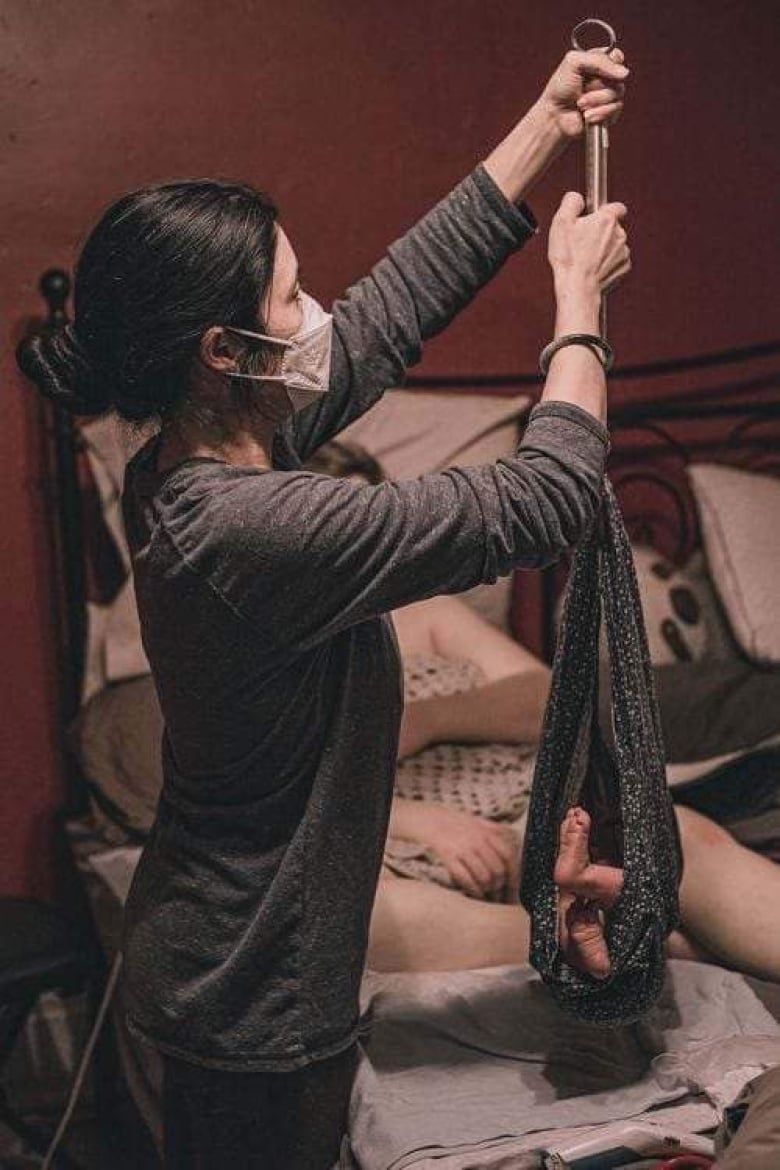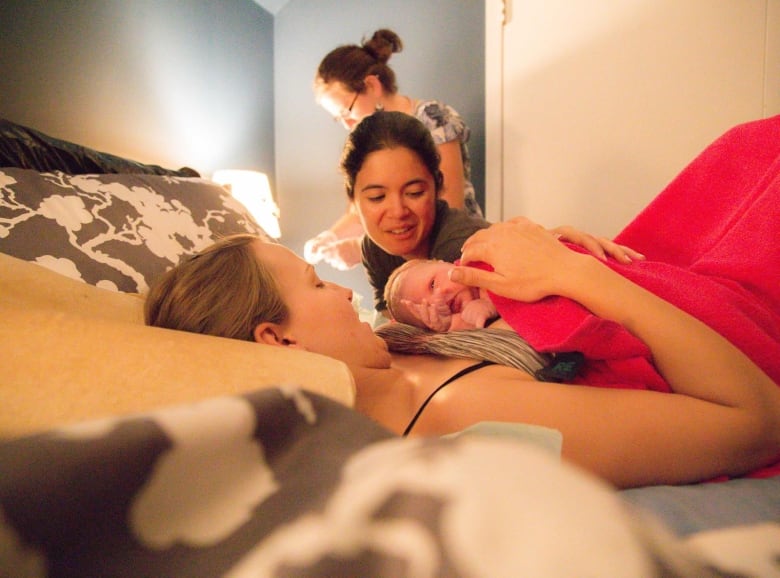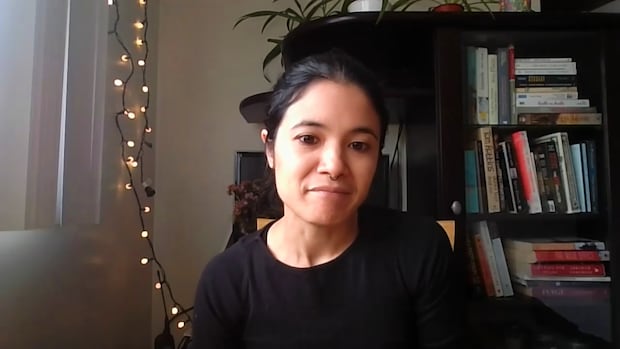
When Mianh Lamson moved to Cape Breton, N.S., a few years ago, she wasn’t planning on working as a midwife, but people she met around her community of Inverness kept telling her she ought to.
“We heard this really strong voice of more interest in access to women’s health care, newborn and postpartum care, and the type of care that midwives can provide,” she said in an interview.
Lamson is a registered midwife with 15 years of experience, but there were no jobs for midwives on the island when she arrived. Nova Scotia’s current model has midwives working exclusively out of three locations: Halifax, Antigonish and the South Shore.
Her plan was to keep practising by travelling to other parts of the country to do occasional locums — that is, temporary placements to fill vacancies and leaves.
“It occurred to me somewhere down the line that it was a bit absurd to be driving to Ontario or Quebec to provide midwifery care when my neighbour wasn’t able to access that care and maybe wanted to,” she said.
Prenatal and postpartum care starting this fall
From that realization, Lamson contacted a family doctor in her community, sparking a first-of-its-kind collaboration that is set to kick off this fall.
Lamson and one other midwife will work out of an existing family practice that’s attached to the Inverness community hospital, providing health care to women and babies during pregnancy and up to six weeks postpartum.

The midwives will take patient referrals from the doctors, and people in the community will be able to self-refer.
The Inverness midwives won’t support deliveries — in hospital or at home — like the midwives at other sites do. Lamson said that’s primarily because the nearest hospitals that are set up for birthing services are in Sydney and Antigonish, both more than 100 kilometres away from Inverness.
“There are many people in our community, myself included, who would love to see birth brought back to the community. And we are working on that as a long-term goal,” Lamson said.
Easing strain on physicians
Dr. Susie Egar is the physician Lamson reached out to.
“I’m really glad that she did,” Egar said in an interview.
“Increased access to primary care services is needed in most communities, definitely including ours.”
Egar said there are five family doctors in Inverness who do triple duty: working at the primary care clinic, keeping the emergency room open and caring for hospital inpatients.
“That limits, sometimes, our accessibility to our patients in the primary care setting. And so having other people that can also collaborate and also work independently and serve our population in that way is going to be really really useful,” said Egar.
She couldn’t put a number on what the midwives will add to the clinic in terms of patient capacity, at least not yet, but she said it will be significant.
Registered midwife Mianh Lamson lives in Inverness, Cape Breton, where there are currently no jobs for midwives, but she’s changing that. Through a collaboration with local family doctors, Lamson is preparing to launch a new midwifery service in the small community this fall.
What made it possible
The Inverness midwifery service is possible because of two programs that have come into existence in the past two years.
In 2022, the Midwifery Regulatory Council of Nova Scotia created a pathway for midwives to practise outside the three existing sites, based on the needs of patients and communities.
Under this new offering, registered midwives can pitch so-called alternative practice arrangements to the council for approval. The catch is that the council doesn’t arrange funding — midwives have to sort that out themselves.
That’s where the collaboration with family doctors becomes essential to the program in Inverness. Through a pilot program that was launched last year by Doctors Nova Scotia, the midwives will be able to bill the doctors, and the doctors will bill the province.

The billing program is available to family doctors who want to add any kind of allied health professional to their practice to improve access to primary care. It’s a pilot program, tied to the latest physician agreement, which expires March 31, 2027, meaning the Inverness midwifery service is only guaranteed funding up to the same date.
“Our hope is that long before that, we will have some really good evidence that this has enhanced community care, and access to care, and improved the working conditions, hopefully, of the health-care providers in our rural community so that we can access some more permanent funding,” said Lamson.
The push for more funding
This will be the first alternative practice arrangement for midwifery care in Nova Scotia. Jenny Wright, the regulator and executive director with the Midwifery Regulatory Council of Nova Scotia, said she’s thrilled it’s happening in Cape Breton, a region that has been underserved “for a very long time.”
“The midwives will be able to see a great deal of women,” Wright said in an interview.
“They’ll be able to do prenatal care, postnatal care, helping mom with baby, breastfeeding, following up with contraception, reproductive health. The sheer volume and scope of what a midwife can provide is quite powerful and will fill a huge gap in the area,” she continued.
Wright said other midwives have expressed interest in setting up alternative practice arrangements, but funding is a big obstacle.
Midwives and advocates have been pushing for years for the provincial government to put more money into midwifery to address long waitlists for existing services, and to expand to other regions of the province.
The Department of Health and Wellness told CBC News it put money for two extra midwives into the budget last year, and those positions were filled in Halifax in January.
Still, Kalyn Moore said there’s room for more growth.
“The sky’s the limit really, if we can get the funding.”
Moore is a registered midwife on the South Shore and the interim president of the Association of Nova Scotia Midwives.
She said demand for midwifery care far outstrips availability in Nova Scotia, pointing to a long waitlist in Halifax and requests for care from people who don’t live near existing midwifery teams.
At the start of this year, the IWK Health Centre in Halifax had 195 people on the midwifery waitlist. A spokesperson said another 36 people were recorded on the list as being ineligible for care because they lived outside the catchment area.
Nova Scotia Health said there’s currently no waitlist on the South Shore, and in Antigonish there are typically one or two people on the waitlist each month.
“We also receive a large number of requests for service from people across the province who live in areas that do not have midwifery services. These people generally are not included on our waitlists as they are out of our area of care,” a spokesperson for the health authority said via email.
Funding, however, is not the only limiting factor. Nova Scotia has, at times, struggled to fill midwifery postings. Some midwifery services have previously been suspended because of job vacancies.
Change on the horizon
Moore said she thinks recruitment and retention would be helped by allowing midwives to practise to their full scope.
The legislation that now governs midwives in Nova Scotia allows midwives to treat “a mother and her baby during pregnancy, labour and the postpartum period.” The postpartum period, by Nova Scotia’s rules, is six weeks.
Moore said midwives are trained to do much more than that. They can provide reproductive and sexual health care throughout life, not just during and after pregnancy, and they can treat babies up to their first birthday, rather than up to six weeks.

Moore and other midwives are eagerly awaiting a shift in governance that could allow them to do everything they’ve been trained to do.
With last year’s passage of a new law to govern health professionals, the midwifery regulatory council is now working on new regulations that will come into effect in 2026.
Wright said the mandate the province gave is to ensure midwives can practise to their full scope.
“Midwives are, in other provinces, working to a fuller, expanded scope.… So this wouldn’t be brand new to Nova Scotia,” Wright said.
“I think that this is going to be a win-win all around.”
Lamson is already imagining what this change would look like for her fledgling practice in Inverness.
“That would really open it up in a really profound way,” she said.
It’s easy to imagine because it’s how she’s currently practising while on a locum in northern Quebec.
“We’ve got teenagers coming in who are not having a baby and maybe that’s a good time to talk to them about that. And we also have 60-year-old women coming in who still need access to sexual and reproductive health care.
“When you have one centre point in the community for all of that care, I think it really creates a relationship of trust with the community that you’re the person that they can come and see about anything that has to do with that. And that’s really lovely.”
